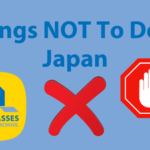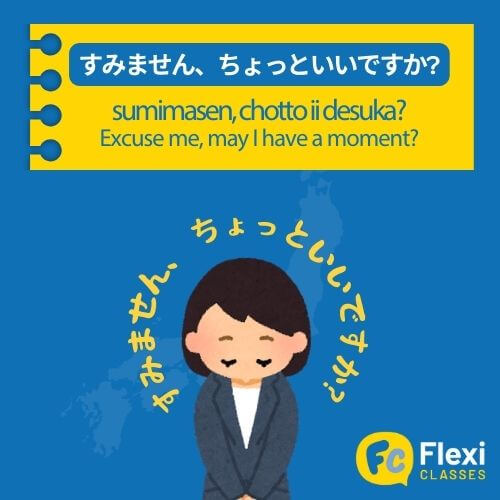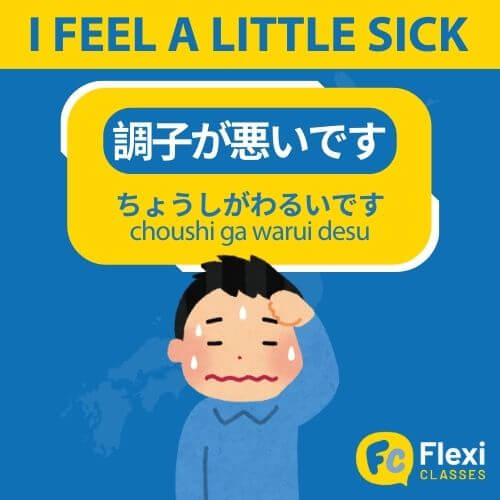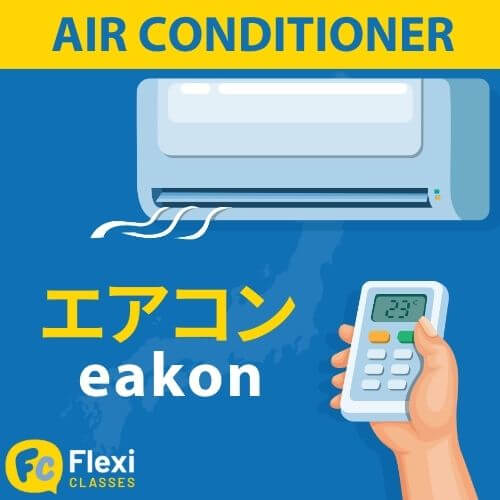Formal and Informal Ways to Ask 'How Are You?' in Japanese
Starting the Conversation: How Are You in Japanese

When you meet someone in any country, it’s a pretty universal custom to ask ‘How are you?’
There are many expressions in Japanese for inquiring about the current state of affairs and health.
💡 Again, it is better not to specify any issues clearly, so the expression sounds more Japanese.
It is also important to use expressions that are appropriate to the situation and the relationship with the other party.
In this blog post, we’ll give you a guide on how to ask “How are you?“ formally and informally in Japanese, so you will never be confused about it ever again.
How Are You in Japanese || Introduction
How Are You in Japanese || Formal Expressions
How Are You in Japanese || Understanding “Choushi” and Others
How Are You in Japanese || Casual Expressions
How Are You in Japanese ] || FAQs
How Are You in Japanese || Introduction
In Japanese, How are you? is usually translated into expressions like:

調子はどうですか?
ちょうしはどうですか?choushi ha doudesuka?
or
お元気ですか?
おげんきですか?o genki desuka?
However, such expressions are rarely used in Japan when meeting someone for the first time, especially in business situations.
👉 So even though this version of ‘How are you?’ is usually the first version taught in textbooks, it’s better to learn some more commonly used alternatives!
At a first meeting, it is usual to start a conversation by saying:
はじめまして、よろしくお願いいたします。
はじめまして、どうぞよろしくおねがいします。hajimemashite, douzo yoroshiku onegai shimasu.
Nice to meet you.
After that, self-introductions begin. Inquiring about the other person’s situation and health is usually done when you have already gotten to know each other.
Thus, the expressions delicately change depending on the relationship with the other party. Japanese is a complicated language! However, as you study and become familiar with it, you will understand it.

Things Not to Do in Japan 🙅♀️ Guide to Japanese Etiquette
Things Not to Do in Japan 🇯🇵 The ULTIMATE list of DON’Ts for your time in Japan and how to maintain perfect Japanese Etiquette
How Are You in Japanese || Formal Expressions
| JAPANESE | ROMAJI | ENGLISH |
| お元気ですか? おげんきですか? | o genki desuka? | How are you? |
| 調子はいかがですか? ちょうしはいかがですか? | choushi ha ikaga desuka? | How are you? |
| 最近はどうですか? さいきんはどうですか? | saikin wa dou desuka? | How have you been? |
| お変わりございませんか? おかわりございませんか? | okawari gozaimasen ka? | How have you been? |
| お加減いかがですか? おかげんいかがですか? | okagen ikaga desuka? | How are you feeling? |
| 具合はどうですか? ぐあいはどうですか? | guai wa dou desuka? | How do you feel? |

“How are you?” can be translated in many ways.
In formal situations, お元気ですか? おげんきですか? – ogenki desuka would be the most standard translation. But as mentioned above, the Japanese do not say this to the person who they meet for the first time.
If someone you want to speak to is elderly, お元気ですか? can be used, even if he/she is a stranger. In other situations, for people you have never met before, you should say:
こんにちは、はじめまして、どうぞよろしくお願いします。
こんにちは、はじめまして、どうぞよろしくおねがいします。konnichiwa, hajimemashite, douzo yoroshiku onegai shimasu.
Hello, nice to meet you.
When you ask a stranger for something, you don’t say お元気ですか?to begin a conversation in Japanese. In this case, it is common to say:
すみません、ちょっといいですか?
Excuse me, may I have a moment?Saying お元気 ですか? to a stranger out of the blue may seem like solicitation.
You can also say:
調子はいかがですか?
ちょうしはいかがですか?choushi wa ikaga desuka?”
How are you?
調子 ちょうし – choushi means conditions or states of affairs, and it is a very useful word in Japanese. This term is very versatile because it can refer to general condition, physical condition, progress, etc.
For example:
When someone is in good form, you can say:
彼は調子がいい
かれはちょうしがいいkare wa choushi ga ii
He is in good form.
If a machine doesn’t work well, you say:
機械の調子が悪い
きかいのちょうしがわるいkikai no choushi ga warui
The machine doesn’t work well.

When someone is getting ahead of themselves, say:
調子に乗るな
ちょうしにのるな!choushi ni noruna!
Don’t push your luck!
In anime, these kinds of expressions often appear.
調子乗るなよ
ちょうしのるなよchoushi norunayo!
Don’t push your luck!
調子に乗りやがって!
ちょうしにのりやがって!choushi ni noriyagatte!
You’re getting carried away!

If you are not feeling good, you can say:
調子が悪いです。
ちょうしがわるいです。choushi ga warui desu.
I feel a little sick.”
When you say 私は病気です わたしはびょうきです (watashi wa byouki desu – I’m sick), it gives an impression that you are under medical treatment, or you need to go to hospital immediately.
When you are not in bad shape but not at your best, 調子が悪いis a useful expression.
最近どうですか?
さいきんどうですか?saikin dou desuka?
How have you been?/ How are the things these days?
This is a useful expression to encourage the other person to talk. This expression can be used in both casual and formal situations.
👉 It doesn’t necessarily mean you’re asking about personal affairs. Instead, it means you’re asking about someone’s situation in general, so the other person will answer something he/she wants to say.
If the other person is interested in stock markets, they might start talking about stock prices. If they’ve had a great vacation somewhere, they’ll start talking about that. This flexibility to make ambiguous expressions is one of the advantages of the Japanese language, but it is also a difficulty.
If you want to focus on a specific topic, you can say:
最近〜はどうですか?
さいきん〜はどうですか?saikin ~ wa doudesuka?
How about ~?

For example, if you know the other person is interested in cooking, you say:
最近料理はどうですか?
さいきんりょうりはどうですか?saikin ryouri ha dou desuka?
How is your cooking these days?
Then he/she would start talking about cooking.
You already know a term 調子[ちょうし] choushi.
You can say:
最近調子はどうですか?
さいきんちょうしはどうですか?saikin choushi wa dou desuka?
How have you been?
This sounds extremely Japanese and you can say this in almost any kind of situation to begin a conversation if you already know the other person.
お変わりございませんか?
おかわりございませんか?okawari gozaimasen ka?
Haven’t you changed?
This literally means “Haven’t you changed?”
This is used when you meet someone for the first time in a long time. With this expression, the other person will start talking about what has happened during the previous period.
お加減いかがですか?
おかげんいかがですか?okagen ikaga desuka?
How are you feeling?
具合はどうですか?
ぐあい具合はどうですか?guai wa dou desuka?
How do you feel?
These are used when you meet someone who has been ill.
お加減いかがですか? おかげんいかがですか? – okagen ikaga desuka? is a very polite way to ask after health, but use it only when it is obvious that someone has been ill or sick. It is also a common phrase when visiting a patient, or a doctor or a nurse would ask a patient in the morning for morning greetings.

Are the Japanese Always Apologetic? How to Say Sorry in Japanese
Understanding the Variations of Sorry in Japanese || Casual and Formal Expressions As you might’ve guessed, today’s blog post is all about how to say “Sorry” in Japanese. Apology and humility play an important role in Japanese culture. In the…
How Are You in Japanese || Understanding “Choushi” and Others
加減 かげん kagen and 具合 ぐあい guai mean the almost same as 調子 ちょうし , but of course there are differences.
Let’s see the difference with the following examples.
| JAPANESE | ROMAJI | ENGLISH |
| エアコンの加減 エアコンのかげん | eakon no kagen | Air conditioner’s adjustment |
| エアコンの具合 エアコンの具合ぐあい | eakon no guai | Air conditioner’s condition |
| エアコンの調子 エアコンのちょうし | eakon no choushi | Air conditioner’s condition |
エアコン eakon means air conditioners.
speak エアコンの加減
エアコンのかげんeakon no kagen
When you say this phrase, you refer to the adjustment of the air conditioner.
エアコンの加減はどう?
エアコンのかげん加減はどう?eakon no kagen wa dou?
If you say this phrase, you ask “Is the air conditioner set properly?”
エアコンの具合
エアコンのぐあいeakon no guai
エアコンの調子
エアコンのちょうしeakon no choushi
These phrases mean almost the same, referring to how an air conditioner works.
But when you use 具合 ぐあい , it implies that something is wrong with the air conditioner.

For example:
今日はエアコンの具合が悪い。
きょうはエアコンのぐあいがわるい。kyou wa eakon no guai ga warui.
Today the air conditioner doesn’t work properly.
今日はエアコンの調子が良い。
きょうはエアコンのちょうしがいい。kyou wa eakon no choushi ga ii.
Today the air conditioner works well.
How Are You in Japanese || Casual Expressions
Perhaps your head has already exploded!
But don’t worry. Most casual expressions are simplified versions of the expressions you see above.
| JAPANESE | ROMAJI | ENGLISH |
| 元気? げんき | genki? | Fine? |
| 調子どう? ちょうしどう? | choushi dou? | What’s up? |
| 仕事どう? しごとどう? | shigoto dou? | How’s your job? |
| 体調どう? たいちょうどう? | taichou dou? | What’s up? |
| どう、調子 どう、ちょうし | dou, choushi? | What’s up? |
The above expressions are often used with people with whom a relationship has already been established. Usually, you can compose a phrase by combining ”どう dou/ How” and the subject you want to ask.
For example:
speak 調子どう?
ちょうしどう?choushi dou?
What’s up?
仕事どう?
しごとどう?shigoto dou?
How’s your job?
体調どう?
たいちょうtaichou dou?
What’s up?
Nice and easy!
You can change the order of words and say:
| JAPANESE | ROMAJI | ENGLISH |
| どう、調子は どう、ちょうしは | dou, choushi wa | What’s up? |
| どう、仕事は どう、しごとは | dou, shigoto wa? | How’s your job? |
| どう、最近は どう、さいきんは | dou, saikin wa? | How have you been? |
In anime and daily conversations, these expressions, where just words are put together, are often used.
If you can use these expressions, it will be easier for the other party to talk to you and the conversation will be even more exciting.
That’s all for this article – but why not check out some other not-as-simple-as-they-sound expressions in Japanese:
If you want a more multi-lingual challenge, check out how to say Common Greetings in Chinese, Nice to Meet You in Spanish, How Are You in Korean or the LTL Forum for discussions on all things language and culture!
How Are You in Japanese || FAQs
What is the basic way to say “How are you?” in Japanese
The basic way to say “How are you?” in Japanese is “お元気ですか?[げんき] ogenki desu ka?”
What are some informal ways to ask “How are you?” in Japanese?
Informal ways to ask “How are you?” are “調子どう?[ちょうし] choushi dou?” or “最近どう?[さいきん] saikin dou?”
What is a polite way to ask “How are you feeling?” in Japanese?
A polite way to ask “How are you feeling?” is “お加減いかがですか?[かげん] okagen ikaga desuka?”
Is it common to ask “How are you?” in Japanese culture?
If you already know each other, it is normal to ask about health and work status, but such things are not often discussed at a first meeting.
How often do Japanese people ask “How are you?” in daily conversations?
It is used only as a conversation starter to the other person and is not frequently used to inquire about his or her health.
Have you ever spoken How are you in Japanese? Share you experiences here!
Want More From LTL?
WANT TO LEARN JAPANESE? Check out our online Japanese courses here.
We offer a 7-day free trial to all new students where you can study 24/7.
What about studying Japanese in Japan instead? We’ve got your back. Our Japanese courses in Tokyo can either be taken in small groups of no more than 5 students or individually for a more tailored experience.
We even offer incredible homestay experiences in Tokyo as well.
Come and be a part of this amazing community.










